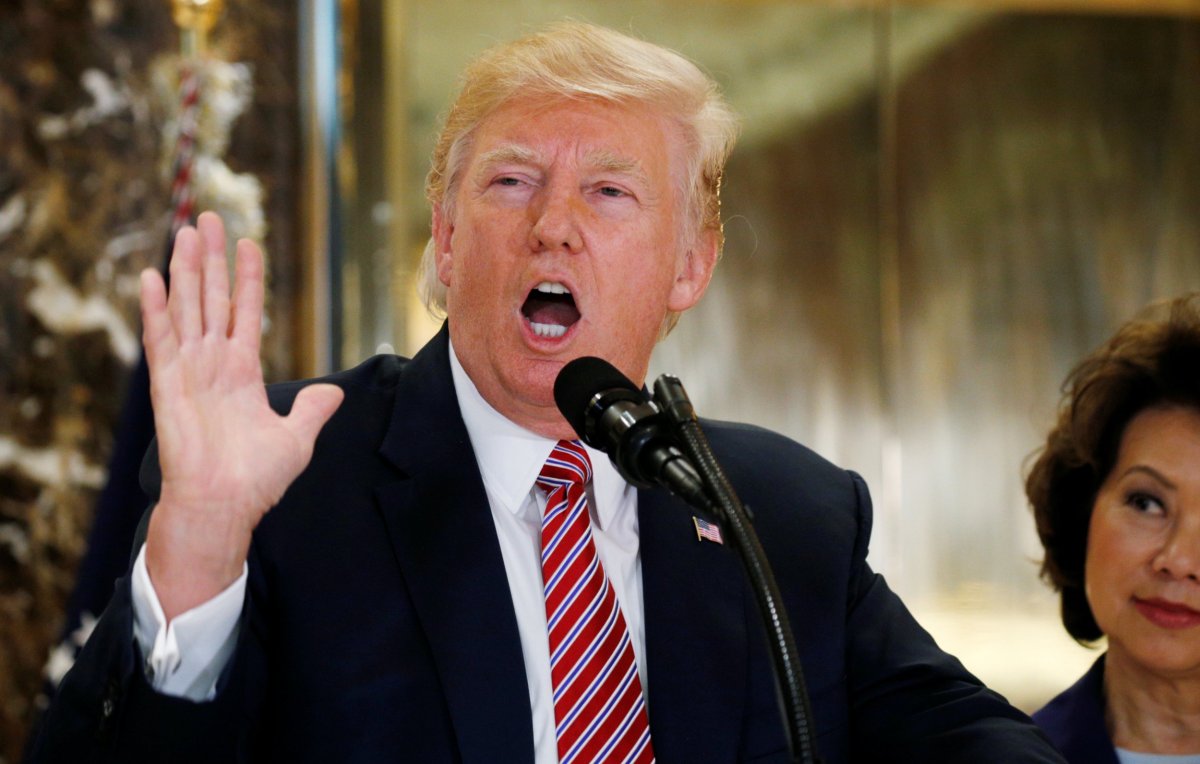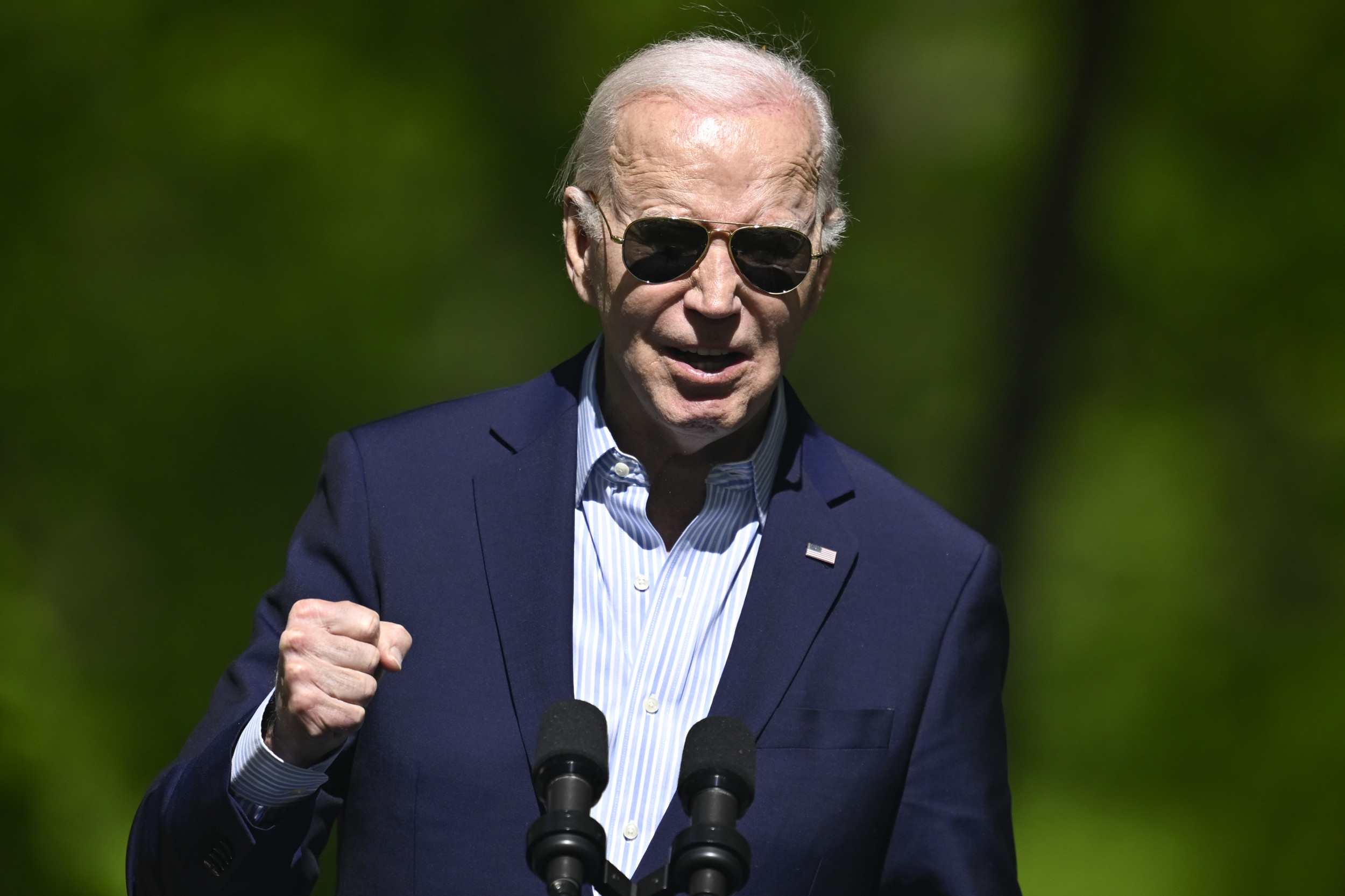President Donald Trump has changed his mind about the existence of the "alt-left" but remains doubtful over the use of the term "alt-right."
At his Tuesday press conference, Trump challenged a reporter to define "alt-right" for him—but showed no qualms about using the term "alt-left" to refer to the anti-fascist protesters who demonstrated against the "Unite the Right" rally, which saw alt-right groups, neo-Confederates, Ku Klux Klan members and neo-Nazis descending on Charlottesville, Virginia, to protest the removal of a monument to Confederate General Robert E. Lee.
"What about the alt-left that came charging at, as you say, the alt-right, do they have any semblance of guilt? What about the fact that they came charging with clubs in their hands, swinging clubs. Do they have any problem?" he said.
It was a sharp U-turn for the president, who only a year ago denied the existence of the "alt-right" and of the "alt-left" in an interview with CNN's Anderson Cooper.
"Frankly, there is no alt-right or alt-left. All I'm embracing is common sense," he said, just a few weeks after his then-campaign strategist Steve Bannon had been quoted proudly defining the Breitbart News website he led for four years as "the platform of the alt-right."

The term "alt-left" originated in far-right spaces and has primarily been used to create a false equivalency with the "alt-right"—like Fox News commentator Sean Hannity did in a segment in November 2016 confronting Buzzfeed reporter Rosie Gray—as Becca Lewis, a research analyst at the think tank Data & Society, wrote in a post in July.
Speaking to Newsweek, Lewis noted that it wasn't the first time Trump's rhetoric drew upon far-right ideas. "Far-right and alt-right groups online would come up with a conspiracy theory or create a meme or use terminology such as 'alt-left.' Trump uses it and broadcasts these ideas to a much, much wider audience, and they become central to the political discourse."
Whether Trump is consciously using far-right terminology is of little importance, Lewis argued. "He is broadcasting these racist ideologies, and it has an impact regardless of whether he means it or not," she says.
White supremacists like former KKK grand wizard David Duke even thanked Trump for his comments, and Richard Spencer, who is credited with the creation of the term "alternative right" or "alt-right," told The Atlantic he was proud of the president for opposing "the narrative of the alt-right violence."
Trump's statement was fair and down to earth. #Charlottesville could have been peaceful, if police did its job. https://t.co/3FUgmWoiWi
— Richard "5%" Spencer (@RichardBSpencer) August 15, 2017
Spencer, who was one of the speakers at the Charlottesville rally, has repeatedly claimed that the police was to blame for the protests and counterprotests turning violent. The Virginia State Police declared the "Unite the Right" rally an "unlawful assembly" on Saturday morning after Governor Terry McAuliffe declared a state of emergency in response to the violence.
Trump's remarks are playing into the hands of white supremacists. "The outcome we see now is precisely the outcome Richard Spencer and white nationalists wanted," Lewis says.
The rally turned deadly when 20-year-old James Alex Fields Jr. allegedly rammed his car into a group of counterprotesters, killing 32-year-old Heather Heyer, just hours after he marched alongside members of the Vanguard America white nationalist group, according to photographs distributed by the Anti-Defamation League.
Uncommon Knowledge
Newsweek is committed to challenging conventional wisdom and finding connections in the search for common ground.
Newsweek is committed to challenging conventional wisdom and finding connections in the search for common ground.
About the writer
Sofia Lotto Persio reports mainly on Asia and gender issues for Newsweek. She previously covered international affairs with a specific ... Read more
To read how Newsweek uses AI as a newsroom tool, Click here.








